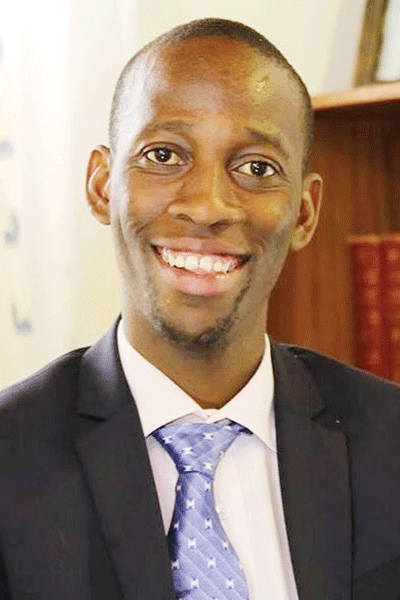
Title: Leadership Wisdom Author: Simbarashe Nyamadzawo Publisher: Infinite Inspiration Group (2016)
Literature is an intrinsic part of every culture as a source of information for decision-making, a storage record of past events for future reference and a display of artistic ability among artistes.
REVIEWED BY BRIAN KAZUNGU
All these facets are quite distinct in Simbarashe Nyamadzawo’s second book, Leadership Wisdom, a sequel to his debut book, Faithpreneurship.
Here, Nyamadzawo addresses issues around leadership principles that can positively and practically turn around how institutions are administered across the socio-economic, religious and political divide.
The book demystifies the field of leadership, particularly through highlights to the effect that everybody is inherently a leader, although some people may never discover or apply this quality in their activities.
A Bible-centric compilation of life-transforming insights, Leadership Wisdom is broken down into seven chapters with the topics: You Were Born To Lead, Vision, Wisdom, Mentorship, People, Prayer and Public Speaking.
- Chamisa under fire over US$120K donation
- Mavhunga puts DeMbare into Chibuku quarterfinals
- Pension funds bet on Cabora Bassa oilfields
- Councils defy govt fire tender directive
Keep Reading
While using very simplified English that appeals to people of all age groups and academic backgrounds, Nyamadzawo stresses that while everybody is born with the capacity and potential to lead, leadership is not a mere privilege, but a serious responsibility, whose societal consequences should not be under-estimated.
He uses examples that the call for, and responsibility for leadership is not a preserve of a select few but cuts across gender, age and race, among other factors.
Citing vision as a critical quality in leadership, the author says exceptional leaders have a trans-generational mindset, which considers and analyses the impact of their decisions and actions on the current and future generations.
He also highlights that visionary leaders must value proper recording of their insights and approach their assignments with the end in mind for reference, as well as for checks and balances, since quite often, it is them alone who may be having a vivid picture of the future that they have in mind.
Although the book is titled Leadership Wisdom, the topic on wisdom is only addressed in the third chapter, but it is given much emphasis, highlighting the sources and benefits of this essential wisdom quality.
Nyamadzawo contends that wisdom can be acquired through natural giftedness, association with wise people, exposure to the relevant literature, mentorship, impartation and prayer.
He then goes on to add that a touch of excellence, an honourable personality, favour with different stakeholders, establishment in various endeavours, societal and personal defence, riches and happiness are some of the benefits associated with wise leadership.
In a world riddled with corruption, selfishness and greed, which are a result of lack of wisdom in understanding the dynamics of societal well-being, this book helps leaders in both the public and private sectors to make open-minded informed decisions, which are mutually beneficial.
He also adds that one of the most notable causes of leadership failure is lack of proper grooming or mentorship, which then results in blunders and costly decisions that have a negative impact on the relevant stakeholders.
He underscores how mentors help to avoid mistakes and accelerate their mentee’s entry into the leadership domain and ignite greatness by providing advice and counsel without which gifts cannot be sharpened, potential gets wasted, mantles are not imparted and legacies are interrupted.
Leadership Wisdom advocates for a civilised executive approach that values and invests in the wellbeing of the relevant stakeholders and reminds the readers that no-one, including any leader, is all-knowing and as such, must give attention to others, rather than to monopolise interaction and engagement.
The relationship between every leader and God, the supreme-being, is also emphasised in the book, which also highlights that leaders believe in something greater than any prevailing situation and must, therefore, utilise prayer and meditation as channels of interacting with this Divine power.
Besides communication with God, the author addresses the importance of articulating information to the relevant stakeholders as a pre-requisite of every good leadership and says that such can be done through mastering the art of public speaking.
He says mastering the art of public speaking helps leaders to sell their vision as well as to persuade, convince, inspire, encourage and motivate other people in a given community and then advises those that have not yet mastered the art of attending public speaking lessons, where they are trained on packaging the message and on the proper use of body language.
Leadership Wisdom is, indeed, a precious handbook that helps to avoid and minimise the abuse of power by those in authority, be it in private and public institutions and advocates for the creation of a conducive environment for both societal and personal well-being.












